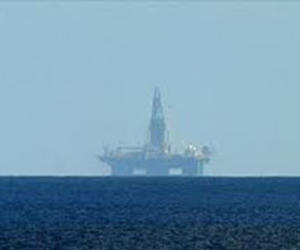U.S. urged to cooperate with Cuba on offshore oil
- Submitted by: manso
- Editorial Articles
- 09 / 08 / 2011

HAVANA (Reuters) - The United States must work with its ideological foe Cuba on joint safety plans as the communist island readies to begin exploration of its still-untapped Gulf of Mexico oil fields, the co-chief of the U.S. BP oil spill investigation said on Wednesday.
William Reilly told reporters the United States should make its expertise and equipment available in case of an accident when a Chinese-made rig begins drilling for oil later this year in Cuban waters about 60 miles from the Florida Keys.
Experts have said a Cuban spill, if not contained, could carry oil to Florida and up the U.S. east coast.
But the longstanding U.S. trade embargo against Cuba prevents American companies from operating on the island.
"It seems to me profoundly in the interest of the United States to ensure that should there be a spill in Cuban waters ... that all efforts are undertaken by both government and private entities in the United States to assist in responding," said Reilly, who is on a trip to Cuba.
The two countries need to jointly develop protocols and plans for that to happen quickly, which has not been done because of U.S. policy, Reilly said.
"The Cubans by every measure I have seen are open and willing and interested in having more information and exchange with the United States," he said.
The BP spill commission Reilly led together with former U.S. Senator Bob Graham of Florida recommended that the United States, Mexico and Cuba, which share the Gulf of Mexico, cooperate to prevent damaging spills.
The BP well, drilled in 5,000 feet of water off the coast of Louisiana took 85 days to control and spilled five million barrels of oil.
OIL RIG ON WAY TO CUBA
The Scarabeo 9 drilling rig, owned by Italian oil giant Eni SpA's offshore unit Saipem and contracted by Spanish oil company Repsol YPF, set sail from Singapore on August 26 and is expected to reach Cuba by November 1 to start drilling the first of several planned wells. The wells will be sunk in water up to 5,600 feet deep.
Reilly was accompanied on the Cuba trip by Lee Hunt, chief executive of the Houston-based International Association of Drilling Contractors, and Dan Whittle, a senior attorney for the Environmental Defense Fund.
Hunt called for the U.S. to license oil spill response companies for Cuban work so they could move quickly if needed.
"Response is our safety net and we believe before the drilling begins in Cuba we need to put up the safety net," he said.
Cuba has been working with Canadian and Norwegian oil experts to prepare safety measures and had sent 200 engineers to Brazil for training on offshore oil equipment, they said.
The Obama administration sent Interior Secretary Ken Salazar to Spain in June to meet with Repsol officials, who assured him the rig would meet all U.S. safety requirements.
But the White House has been slow to move otherwise, in part because of opposition from Florida lawmakers, particularly Cuban Americans who say the discovery of oil in Cuba will help the communist government led by President Raul Castro.
"The U.S. should make it clear that we oppose any and all dealings which would help Cuba become the oil tycoons of the Caribbean," U.S. congresswoman Ileana Ros-Lehtinen, chairman of the House of Representatives Foreign Affairs Committee said.
But Whittle said: "We simply cannot afford another major oil spill in the gulf and it's critical that the countries work together." (Editing by Christopher Wilson)
Source: http://news.yahoo.com/u-urged-cooperate-cuba-offshore-oil-025737225.html...
Comments